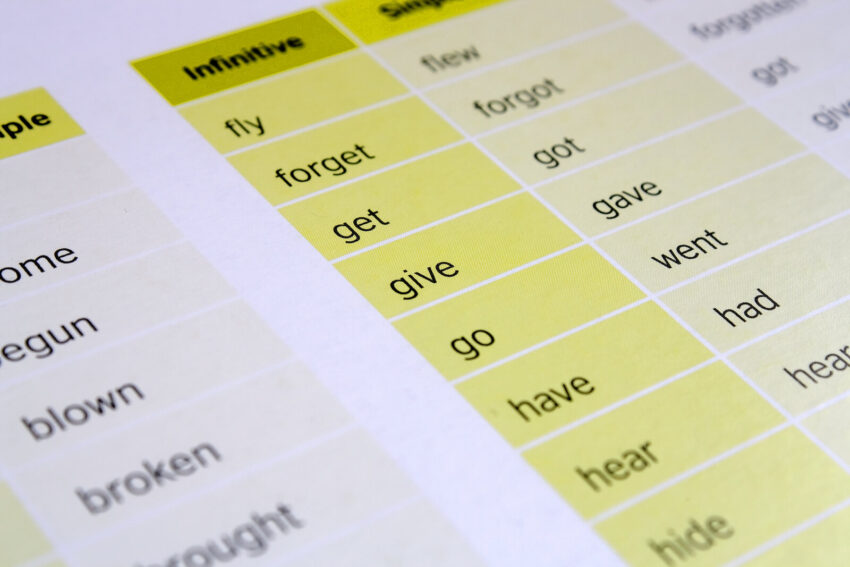Unraveling Complicated English Grammar: Demystifying Verb Tenses
English grammar could be a daunting topic, particularly on the subject of verb tenses. The proper utilization of verb tenses is important for efficient communication, because it helps convey the timeline of occasions or actions. On this article, we’ll delve deep into verb tenses, unraveling their complexities and offering a complete understanding of their utilization.
Current Tense
The current tense is used when referring to actions occurring within the current or basic truths. It’s the easiest verb tense, and its conjugation stays the identical for all topics. For instance, “I stroll to high school on daily basis” or “The solar rises within the morning.”
Previous Tense
The previous tense is used when referring to actions which have already occurred. Common previous tense verbs are shaped by including -ed to the bottom type of the verb, corresponding to “walked” or “talked.” Nonetheless, irregular verbs have unpredictable conjugations, corresponding to “go” changing into “went.” For instance, “I walked to high school yesterday.”
Future Tense
The longer term tense is used when speaking about actions or occasions that can occur sooner or later. It may be shaped by including auxiliary verbs like “will” or “shall” earlier than the bottom type of the verb. For instance, “I’ll stroll to high school tomorrow” or “They shall arrive subsequent week.”
Current Good Tense
The current excellent tense is used to explain an motion or occasion that began up to now however remains to be related to the current. It’s shaped through the use of the auxiliary verb “have” or “has” with the previous participle type of the verb. For instance, “I’ve walked to high school earlier than” or “She has studied English for 5 years.”
Previous Good Tense
The previous excellent tense is used to point an motion or occasion that occurred earlier than one other previous motion or time. It’s shaped through the use of the auxiliary verb “had” with the previous participle type of the verb. For instance, “I had walked to high school when it began raining.”
Future Good Tense
The longer term excellent tense is used to explain an motion or occasion that shall be accomplished earlier than a specified future time. It’s shaped through the use of the auxiliary verb “can have” with the previous participle type of the verb. For instance, “I’ll have completed my work by the point you arrive.”
Understanding verb tenses can vastly enhance one’s capability to speak successfully in English. Whereas they could appear advanced at first, breaking them down and familiarizing oneself with their particular usages can demystify their complexities. By mastering verb tenses, it is possible for you to to precisely convey the timeline of occasions or actions in your communication.
In conclusion, verb tenses play a big position in English grammar. Keep in mind to concentrate to context and differentiate between previous, current, and future actions. With observe and familiarity, these verb tenses will grow to be second nature, enabling you to precise your self extra precisely and fluently in English.
Nidhin
For More Details Call: +917510220582

